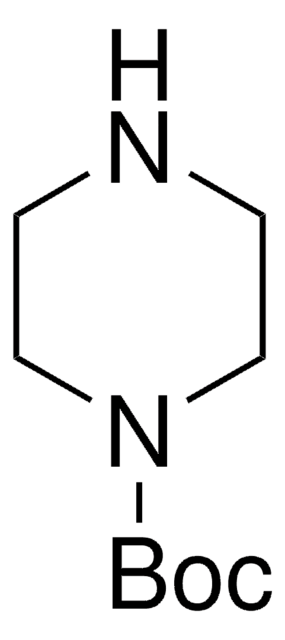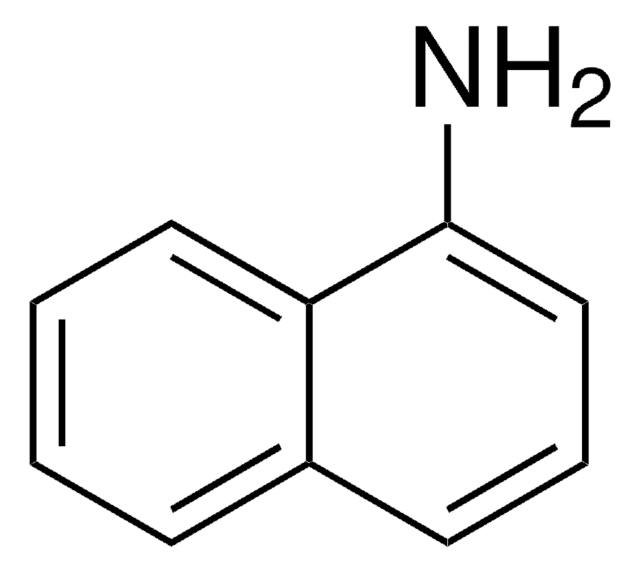All Photos(3)
About This Item
Empirical Formula (Hill Notation):
C4H4ClN3
CAS Number:
Molecular Weight:
129.55
MDL number:
UNSPSC Code:
12352100
PubChem Substance ID:
NACRES:
NA.22
form:
solid
Assay:
97%
Recommended Products
Quality Level
Assay
97%
form
solid
mp
155-160 °C (dec.)
functional group
chloro
storage temp.
2-8°C
SMILES string
Nc1nccc(Cl)n1
InChI
1S/C4H4ClN3/c5-3-1-2-7-4(6)8-3/h1-2H,(H2,6,7,8)
InChI key
DBGFGNCFYUNXLD-UHFFFAOYSA-N
Looking for similar products? Visit Product Comparison Guide
Application
Substrate used in a palladium-catalyzed cyanation with zinc(II) cyanide.
Signal Word
Danger
Hazard Statements
Precautionary Statements
Hazard Classifications
Acute Tox. 4 Oral - Eye Dam. 1 - Skin Irrit. 2 - STOT SE 3
Target Organs
Respiratory system
Storage Class Code
11 - Combustible Solids
WGK
WGK 3
Flash Point(F)
Not applicable
Flash Point(C)
Not applicable
Personal Protective Equipment
dust mask type N95 (US), Eyeshields, Gloves
Choose from one of the most recent versions:
Already Own This Product?
Find documentation for the products that you have recently purchased in the Document Library.
Adam Littke et al.
Organic letters, 9(9), 1711-1714 (2007-03-28)
[reaction: see text] New methods for the palladium-catalyzed cyanation of aryl and heteroaryl chlorides have been developed, featuring sterically demanding, electron-rich phosphines. Highly challenging electron-rich aryl chlorides, in addition to electron-neutral and electron-deficient substrates, as well as nitrogen- and sulfur-containing
Jonita Stankevičiūtė et al.
Scientific reports, 6, 39129-39129 (2016-12-17)
Pyridinols and pyridinamines are important intermediates with many applications in chemical industry. The pyridine derivatives are in great demand as synthons for pharmaceutical products. Moreover, pyridines are used either as biologically active substances or as building blocks for polymers with
Our team of scientists has experience in all areas of research including Life Science, Material Science, Chemical Synthesis, Chromatography, Analytical and many others.
Contact Technical Service



![[1,1′-Bis(diphenylphosphino)ferrocene]dichloropalladium(II)](/deepweb/assets/sigmaaldrich/product/structures/130/734/8846aa26-1858-458a-998d-8c306c13bf0f/640/8846aa26-1858-458a-998d-8c306c13bf0f.png)






